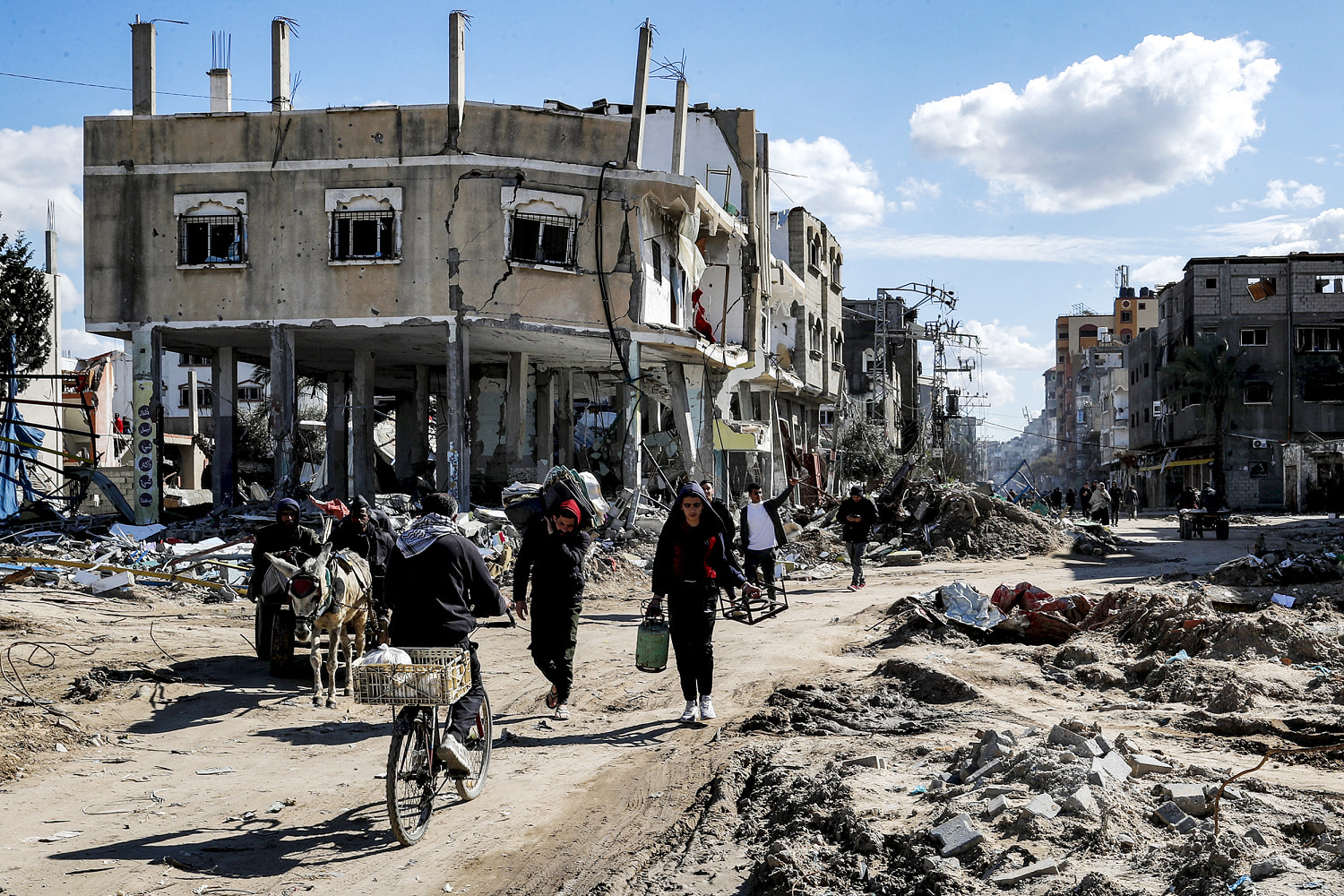
Israel’s war Cabinet is on standby for Hamas’ reaction to the principles ironed out in Paris on Sunday by CIA director William Burns, head of the Mossad David Barnea, Qatari Prime Minister Sheikh Mohammed bin Abdulrahman Al Thani and an Egyptian senior intelligence official, according to a senior adviser to the war Cabinet.
“Everyone is waiting to see Hamas’ reaction,” the adviser said, who asked not to be named given the sensitivity of the talks, adding that it could take several days.
The war Cabinet is expecting to start negotiations according to the principles sent to Hamas once Hamas replies, the adviser said.
Israel has floated a two-month pause in fighting in order to get the hostages back, NBC News has previously reported, but current and former Israeli officials say no terms have been set in stone.
There are still “wide gaps” between Israel and Hamas on the outline of a potential deal, according to professor Jacob Nagel, former national security adviser to Israel who is also in Prime Minister Benjamin Netanyahu’s orbit.
Hamas has previously demanded that Israel end the war and withdraw all troops from Gaza, that Hamas stay in power in the enclave, and that Israel not make any changes along the border of Israel and Gaza.
“There might be a deal if Sinwar will give up his three basic demands, meaning going back to Oct. 6th,” said Nagel, who is a senior fellow at the Foundation for the Defense of Democracies.
Netanyahu posted a video Tuesday responding to “rumors” about the deal.
“We are committed to getting a hostage deal, but not at any price. I have red lines,” he said. “Among them are: we won’t end the war, we won’t remove the IDF from the Gaza Strip, and we won’t release thousands of prisoners.”
Hamas is currently fragmented, with leadership split geographically between Doha, Qatar, and inside the Gaza Strip. There are both physical and ideological divides between the political and military wings, making consensus-building a challenge.
Adding to the logistical hurdles, Hamas’ leader in Gaza Yahya Sinwar is in hiding in Gaza, working to mask his communications so Israel’s military doesn’t find him.
Nagel said he believes Sinwar will likely keep some hostages forever as “his insurance policy.”
“We also want that the deal to be for all the hostages, not only the 35 humanitarian prisoners,” Nagel said.
Another senior Israeli official said that, given all the challenges, it’s unclear if the deal will come together. “I don’t think it’s more than 50/50 it will materialize,” the senior official said.
Source: | This article originally belongs to Nbcnews.com










